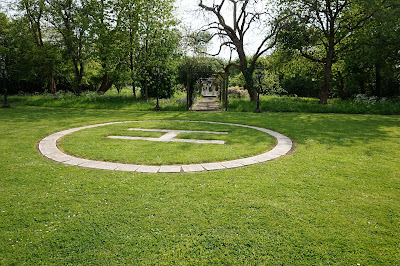PUNJAB GOVT APPROVES RS. 8.8
CRORE TO UPGRADE PM SHEHBAZ SHARIF’S HELIPAD DESPITE AUSTERITY DRIVE
In a move that has raised
eyebrows and sparked controversy, the standing committee of the Punjab cabinet
has approved a staggering Rs. 88 million to refurbish the helipad used by Prime
Minister Shehbaz Sharif at his Model Town mansion in Lahore. This comes despite
inflated claims of an austerity drive and opposition from high-ranking
officials who view the expenditure as exorbitant given the country's poor
financial state. The approval has also raised questions about the government's
sincerity in enforcing system-wide austerity measures while seeking financial
support from the International Monetary Fund (IMF).
According to a report published
today, the amount of Rs. 88 million will be transferred from a block allocation
of the home department into the Asaan Assignment Account of the Lahore Deputy
Commissioner (DC), pending completion of all legal and regulatory requirements.
The upgrade cost for the helipad was authorized during the meeting and will be
paid for "in principle" from a block allocation of the home ministry.
At the second meeting of the caretaker SCCLO on March 22, 2023, the deputy
commissioner also provided an approximate cost estimate for the pavement,
control room, lighting system, generators, and civil works for the helipad,
which was approved by the SCCLO.
The decision has come under heavy
criticism from many quarters, including opposition parties, civil society
organizations, and the general public. Many have taken to social media to
express their outrage, with some calling the move "shameful" and
"an insult to the poor." Others have pointed out that this is not the
first time that the government has approved such extravagant expenditures, and
that such moves are indicative of a larger problem of corruption and
mismanagement in the country.
The approval of the helipad
upgrade also raises questions about the government's commitment to austerity
measures, which have been a key part of its economic policy since it came to
power. The government has been seeking financial support from the IMF, and has
implemented a series of austerity measures to reduce the budget deficit and
stabilize the economy. However, critics have accused the government of failing
to follow through on these measures, citing a lack of transparency and
accountability in its financial management.
The controversy surrounding the
helipad upgrade is likely to further erode public confidence in the government,
which has already been hit hard by a number of scandals and controversies in
recent years. Many are calling for greater transparency and accountability in
government spending, and for a renewed commitment to the principles of good
governance and fiscal responsibility. The government, for its part, has yet to
issue a formal response to the criticism, but it is likely that it will face
further pressure to justify the expenditure and to demonstrate its commitment
to austerity measures.
The controversy surrounding the
helipad upgrade is not the first time that the government has come under fire
for its spending habits. In recent years, there have been a number of
high-profile scandals involving mismanagement, corruption, and misuse of public
funds. These scandals have eroded public confidence in the government and have
highlighted the need for greater transparency and accountability in government
spending.
In response to these scandals,
the government has implemented a number of austerity measures, including cuts
to government spending, reductions in subsidies, and increases in taxes. While
these measures have been necessary to reduce the budget deficit and stabilize
the economy, they have also had a significant impact on the lives of ordinary
citizens, many of whom have been struggling to make ends meet.
The approval of the helipad
upgrade has therefore been seen by many as a sign that the government is not
serious about its commitment to austerity measures. Critics have argued that
the government's rhetoric on austerity is nothing more than empty promises, and
that it is more interested in maintaining its own privileges and perks than in
serving the needs of the people.
The controversy has also
highlighted the issue of political corruption in Pakistan. Corruption has long
been a problem in the country, with politicians and government officials
accused of embezzlement, bribery, and other forms of misconduct. While there
have been efforts to combat corruption, progress has been slow, and many
believe that the problem is deeply ingrained in the political system.
The controversy surrounding the
helipad upgrade is therefore just one example of a larger problem facing
Pakistan. If the government is serious about addressing this problem, it will
need to take bold steps to root out corruption and ensure that public funds are
being used for their intended purposes.
In the meantime, the controversy
is likely to continue to generate headlines and fuel public anger. It is also
likely to have an impact on the government's ability to secure financial
support from the IMF, which is already facing significant pressure from its own
members to ensure that loans are being used for their intended purposes.
Overall, the controversy
surrounding the helipad upgrade is a stark reminder of the challenges facing
Pakistan as it seeks to navigate a complex and rapidly changing global economy.
If the government is to succeed in its efforts to build a stronger, more stable,
and more prosperous Pakistan, it will need to demonstrate a renewed commitment
to transparency, accountability, and good governance, and to ensure that public
funds are being used in the best interests of the people.
In conclusion, the approval of
the Rs. 88 million upgrade to PM Shehbaz Sharif's helipad has sparked
controversy and raised questions about the government's commitment to austerity
measures. While the government has yet to issue a formal response to the
criticism, it is clear that this move has eroded public confidence in the
government and its ability to manage the country's finances. With the IMF's
financial support hanging in the balance, it is crucial that the government
takes steps to restore public trust and demonstrate its commitment to good
governance and fiscal responsibility.













0 Comments